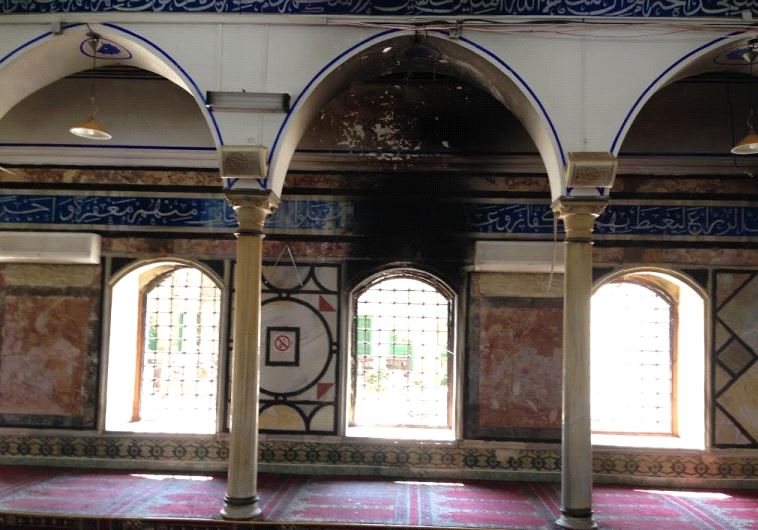Muslim-Jewish cooperation in wake of mosque fire a sign of good relations in Acre
Sunday night blaze likely caused by electrical short circuit, not motivated attack, police say.
 The Al-Jazzar mosque after the fire(photo credit: ELIYAHU KAMISHER)Updated:
The Al-Jazzar mosque after the fire(photo credit: ELIYAHU KAMISHER)Updated: